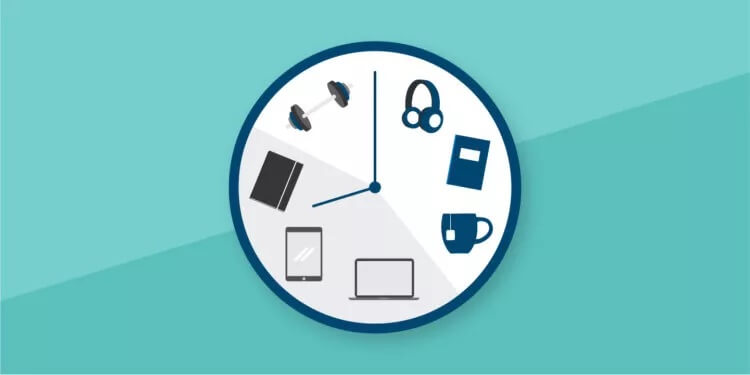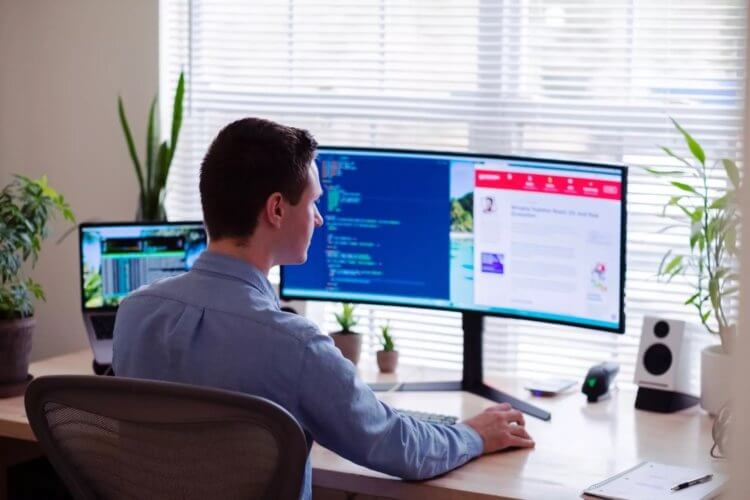Is work-life balance in UK law achievable? It’s a question that has been debated increasingly frequently in recent years in the legal space as many legal professionals now seek to find law careers with work-life balance.
A good place to start with this question is by defining what work-life balance is. The Cambridge Dictionary defines it as “the amount of time you spend doing your job compared with the amount of time you spend with your family and doing things you enjoy.” Using that definition, a lot of lawyers and other legal professionals might find they are not achieving the balance they want.
Lawyers are notorious for their long hours and demanding workload, starting from the days of their legal education and subsequent traineeships. That pressure can be built into firm operations.
According to the 2022 Legal Trends Report, 86% of lawyers work outside of the typical work day, with 73% regularly working during weekends. This is hardly surprising—68% of clients want to communicate with their lawyers after hours and the same percent expect to be able to chat with their solicitors over the weekends.
It’s not surprising, then, that the legal industry is especially vulnerable to the pressures of time. Time outside of work and the office are often spent preparing for a trial or meeting clients, commuting, caring for children or other dependents, in meetings and conferences, waiting for court, and more. As a lawyer, it can feel like your personal time is never truly your own—and even when you find some personal time, it’s not enough.
Use Clio’s Lawyer Mental Health guide to identify when you’re approaching burnout and discover what mindfulness is, and how to practice it in your daily life.
Causes of work-life balance disruption
Other factors that disrupt a lawyer’s work-life balance include:
Presenteeism, that is, working when not physically or mentally capable. A simple example is working while ill. While the person is “working,” their productivity rate is lower than when they are in their full health which can lead to mistakes and oversights.
Long hours, particularly when training as a junior. The pressure to work a lot begins early in the legal profession. A survey conducted by Legal Cheek in 2022 showed that many trainee and associate lawyers work in excess of 11 or 12 hours in an average day. Some finish on average at 11.11 p.m.—almost 14 hours after their day begins.
Time-recording requirements also put more pressure on lawyers. While billable hour targets need to be met in a lot of firms, there is also work to be done that is not billable. An article from The Law Society Gazette explains:
“A solicitor with a modest target of 1,400 billable hours per year will need to account for approximately 6 hours of billable time per day (divide 1,400 by 12 months, for four weeks, and then for five working days).
“The result leaves around one hour in traditional core working hours (a 37-hour week) to complete other aspects of the job role including business development, administration, billing tasks, learning and development, supervision, one to ones, performance reviews, diversity and inclusion work and internal meetings.
“The inevitable reality is that solicitors work long hours to account for the non-billable work which they do for the business. This additional time is often unrecognised by the traditional billable hours metric. It is, therefore, unsurprising that solicitors are reported to be struggling with work-life balance and burnout is all too common.”
Lawyer work-life balance and mental health

The impact of being a lawyer on mental health is now widely discussed. There have been studies carried out in the last number of years, notably the LawCare’s Life in the Law study 2020/21 which looked at the mental health and well being of the legal profession. The legal profession is starting to encourage an open conversation about addiction, depression, anxiety, and other effects on lawyers’ mental health. While there are many resources available to help lawyers explore lawyer wellness and mental health, the best ones will take into account the unique position lawyers are placed in.
The same is true for lawyer work-life balance. This makes defining the term in this context more complex than a simple ratio of time spent working versus doing things you enjoy. For lawyers, that work-life balance is about creating efficiencies in your work life to enjoy your work more. Creating efficiencies in your work will also free up time for more fulfillment in the waking hours where the rest of your life happens.
You may like these posts
Can lawyers have work-life balance?
Optimistically, yes! Although realistically, this looks different for lawyers than it does for individuals in other professions, there are fulfilling law careers with work-life balance built in, where you can still be high performing.
That’s not to say that for the typical lawyer or law firm, every day is always going to always be easy. The demands of your day as a lawyer will vary based practice area, law firm culture, the structure of your family, and the kind of support you have both personally and professionally.
However, the rise of remote working has significantly impacted lawyers’ work-life balance.
According to the 2022 Legal Trends Report, “As legal professionals embrace more flexible work habits—and possibly more work in general—they run the risk of their work negatively impacting their personal life, and vice versa… If lawyers continue to work remotely, choose the hours in which they work, or put more time towards their work, they need to find better ways to balance their work with their own personal goals and commitments.”
If you’re seeking a great work-life balance in your career, there’s something important to keep in mind:
Work-life balance is a process, not a goal

Finding work-life balance as a UK legal professional is something that will be an ongoing process throughout your career. Decide and document what this looks like for you: Does having balance mean ensuring that you get time to do at least one hobby a week? Being sure you’re home to put the kids in bed? Spending more time with your friends or with your pets? Whatever the case may be, write it out.
Use that self-discovery to chart a course of action that’s flexible, yet committed to your overall well-being and long-term mental and physical health. Consistency is important here as the accumulation of small efforts on a daily basis can lead to big results.
To be successful, your mindset toward achieving balance can have a significant impact on achieving a good work-life balance. Adopting two important mindsets—positive stress and growth—can pay dividends in how you process the ongoing work you’re doing in this area. When the term “lawyer work-life balance” is being defined by the person ultimately responsible for creating it, the right balance for you is entirely possible. Ultimately, the only way you, as a lawyer, can achieve a work-life balance is by making it a non-negotiable commitment to yourself, and understanding that no two definitions of this term will look the same.
How to achieve better work-life balance as a lawyer
Although the global pandemic has put additional constraints on how we might normally tackle this problem, it has also created so much opportunity for us to permanently improve the way we live and work. It has been a chance for us to think deeply and create a new way of living and working for lawyers that promotes well-being, while enhancing the services we provide to legal consumers.
Think about your personal and professional goals
The individualistic nature of lawyer work-life balance makes your thoughts and feelings on satisfaction and success a critical factor in achieving well-being. One approach that you may find useful is The Desire Map, by Danielle LaPorte. This methodology asks you to look at what’s working and not working in your life. This will then reveal patterns and clarity on what you’re aiming for.
Start with some of these questions:
- What’s working in my life currently?
- What’s not working for me? Where are my pain points?
- What are some things I would like to change?
- What does a successful and satisfying life look like? How does it feel?
- What’s in the way of me getting there?
- How can I take steps each day, week and month to feel more satisfied?
Use that information to start planning your way forward and looking honestly at where you are versus where you would like to be. When you’re constantly busy, it can be hard to imagine any other way of being. This exercise prompts you to slow down and take stock of what is and what could be.
Be true to your personal and professional needs
Perhaps you’ve identified that you work better at home. Or maybe the time you’ve regained with no commute is now time you have to work out or cook dinner for your family. The good news here is that over the past couple of years many law firms have fast-forwarded legal technology adoption. An increasing number of firms have either gone virtual or are thinking of going virtual. If you’ve been working from home or on a hybrid basis since the pandemic began, this may be the time for you to advocate for working from home on a part-time or full-time basis. Or if you’re better suited to office life, you may be able to strike a balance between going into the office a few days a week and working from home the rest of the time.
For the founders of Ergo Law, Emma Reid and Cathy Donald, the ability to be flexible, and to provide a strong work-life balance where staff are valued and accommodated, is important. When they founded their company in 2015, they both agreed they needed a solid technology solution from the start. They used Clio’s cloud-based management tools, which meant they could work from anywhere…particularly useful during pandemic lockdowns. And post-pandemic?
They say: “Pre-pandemic, post-pandemic, I think any of our staff would say we offer a genuinely flexible working environment, and I think all of our staff appreciate that. Provided the work gets done and the clients are happy, we really don’t mind too much where or when you work.
Build a work schedule that suits you

Many of our days are beholden to whatever is on the calendar, which can be anxiety-inducing. If you’re not a morning person, that consultation at 9 a.m. will require more energy than if that meeting was two hours later. If you typically feel fatigued around 3 p.m., having that hour as your only block to do a research or writing task isn’t ideal either.
Daniel Pink, author and keynote speaker at the 2019 Clio Cloud Conference, reveals the science behind how each individual should set up their daily routines based on the chronotypes he outlines in his book When. Unlocking the secrets to the best time to drink your cup of coffee, or do focused work on a motion can make a huge difference in your daily productivity and overall mood.
Based on what you know about when you work best, try blocking off time in your calendar for deep work. You can also try communicating with your staff or colleagues that the best time for client meetings is right before lunch.
Consider alternative work schedules and styles
If you’ve realised that working full-time in the legal profession doesn’t work for the life you want, part-time or flex work is becoming increasingly popular and is still a viable option to make money and have more control over your workday. You’ll be motivated to be more productive in the hours you do work and will have time to balance the demands of the rest of your life.
Whether you work the traditional 9-5 or have more flexible hours, building in time for movement, nutrition, rest, and connection is also important for a more balanced lifestyle. For example, you could incorporate a short yoga session into your workday or a walk. Spending time on activities you enjoy will contribute to you being a more effective and happier lawyer.
At the end of each week, try looking at the week ahead and insert some time blocks for meals, a walk, yoga, or whatever else recharges you during a workday.
Take care of yourself to manage stress and anxiety

Lawyer burnout is prevalent, but making time for self-care can help legal professionals to prevent burnout. While self-care will look different for everyone, getting adequate sleep, eating nutritious foods, and movement are essential elements in taking care of yourself.
Taking time away from work is also necessary. When your firm is running efficiently, you’re able to take holidays without worrying about things falling apart. A trip abroad, or even a staycation, can help to reduce stress and allows you to come back to work with a renewed focus. Letting your clients know that you’ll be away from the office in advance can reduce the chances your vacation will be interrupted. Setting clear expectations with staff can ensure the firm will continue to run as expected.
If you simply can’t check out of work for a week or more, using cloud-based technology like Clio will allow you to check in on your cases from wherever you are. Be sure to set boundaries for yourself on the amount of time you’ll be working while you’re away so you can receive the benefit of taking time off.
Set up your workspace for success

Wherever you work from, a home office or otherwise, set up your workspace to work for you. Consider your personality, work style, physical needs, and what you need to be comfortable and productive as you assess your office space.
If you have the option, look into a standing desk or desk converter to reduce the amount of time you’re sitting each day. According to the NHS, many adults spend 9 hours a day sitting down, a practice that can lead to myriad health issues. Studies have shown that these long periods of inactivity are linked to being overweight and obese, type 2 diabetes, some types of cancer, and early death. So this one change in your office space can make a big difference in your overall health.
An organised workspace is also critical to your well-being. Not only will you know where everything is, but you’ll also experience a more organised mental state. As Marie Kondo says in The Life Changing Magic of Tidying Up: “From the moment you start tidying, you will be compelled to reset your life. As a result, your life will start to change.”
Organise client files with technological tools
One big culprit of untidy workspaces is paper. If your law firm is set up to handle client files using paper and premise-based servers, you’re likely spending too much time searching for information and getting organised. Try digitising your files using a scanner like Fujitsu ScanSnap, which integrates with Clio’s unlimited cloud-based document storage. You’ll be able to search for documents by navigating to the matter they belong to in a few clicks, instead of rifling through a pile of papers or disorganised filing cabinets to get what you need.
Use legal technology to save time and automate tedious tasks

Our 2022 Legal Trends Report revealed that lawyers only bill 2.6 hours per day (33% of the time they spend at work). Something has to change.
Cloud-based legal technology like Clio can help you reduce the amount of time you spend on administrative tasks, and has the added benefit of helping you run your business from a centralised, virtual place, which allows you to work from anywhere. By utilising legal workflow automation, lawyers and other firm staff can cut down on inefficient or manual processes that slow them down and cause them to stay later in the office.
Additionally, when a disaster strikes or a global pandemic forces a lockdown, lawyers who use Clio have the flexibility to run their firms remotely without a complete upheaval of existing processes. Cloud-based software like Clio can help you automate repetitive tasks so you can do more billable work, automate your client intake process and obtain electronic signatures, and grow your business more efficiently. With 90+ UK integrations, Clio reduces double entry between the vital software solutions law firms use every day, like calendaring, email, and accounting software.
Our 2021 Legal Trends Report found that lawyers spent 11% of their time configuring technology. Clio users have the advantage of a solution created for lawyers that often requires minimal setup time, a vast library of support tools, and real people available to help 24/5 if you’re stuck. The brief time investment made in configuring Clio for your firm will pay dividends in the long run.
Spend time on doing things you enjoy
Work-life balance for lawyers shouldn’t just include taking care of business at home and work. It should also include activities that recharge you. Make sure you’re looking at the full picture of your life. Spend time with family and friends, participate in outdoor activities, or binge-watch a new show. You can also put together virtual game nights with video conferencing software like Zoom, or try new activities like painting, baking sourdough bread, or growing some new houseplants.
Keeping your passions and hobbies alive is important to overall satisfaction. One of our U.S.-based clients, attorney Chris Trebatoski, runs Treblaw, LLC in Milwaukee, WI, and has been able to pick up salsa dancing 5-6 hours per week as a way to keep performance art in his life.
Consider going solo if you aren’t a sole practitioner yet
If you’re trying to find the best law jobs for work life balance, or if you’re at a firm where the culture contributes to a lack of balance, you may want to consider going solo or starting your own firm. Yes, you’ll be taking on all of the management responsibilities of a law firm. It may seem risky to do given the current economic situation. However, the benefits are proportional to the risk—having more control over the way you run your firm and how you manage your time can give you balance you wouldn’t be able to achieve by working for someone else.
Our “The Making of a Law Firm Hub” is a free on-demand series that tracks four law firm leaders who did just that: starting their own firms or striking out as a sole practitioner in the midst of a pandemic.
Our guide to starting your own law firm is another great resource to help get you started.
We’ve seen thousands of lawyers go solo for the first time, and a clear plan and ideal outcome should remain your central focus. If (and when) things pick up, consider using freelancers to take care of some of the writing and other processes so that you have more time to focus on the things you love about being a lawyer and can scale your solo practice without the extra stress.
Shift the culture of stress at your firm
If you’re not quite ready for solo work, and generally like the firm you’re currently with, there are a few things you can do to shift the culture of stress for the entire firm’s benefit. As a law firm owner or partner, these things can completely shift morale and productivity with your staff and make stress levels more manageable. If you’re not already, try the following:
- Instead of judging others by the hours spent at their desk (or “logged in”), communicate work hour expectations and what success looks like at work. Consider whether there’s room for deviation from 9-5 work hours if employees can be more productive during other hours.
- Improve trust between colleagues by improving communication and increasing transparency. In addition to the work hour expectations, try sharing what the firm’s revenue targets are, and how those targets are set so that employees understand the impact their work has on the firm’s success.
- Make it a firm policy to block out calendar times for personal commitments where necessary, and remove any judgment or stigma for having to do so.
If you’re not in a position to make these decisions, advocacy is a big part of work-life balance for lawyers, and this could be a good place to start.
Conclusion: Lawyer work-life balance is a journey

In exploring whether lawyer work-life balance is possible, we’ve covered everything from goal-setting to law firm efficiency. But the common thread throughout this piece is you. Being an advocate for yourself and your well-being is the only way you can achieve your vision of a balanced, well-lived life. If something isn’t working, take steps to change it so it does.
One last takeaway is that balance is a constantly evolving process. What may work for you today may not work next year, as life unfolds in ways we can’t always predict. Make it a habit to check in with yourself and how you’re feeling regularly.
Making small changes over time can also give you more of what you want. Being a work in progress does not make you imbalanced. Rather, it is a sign that you’re willing to put in the work to optimise your life to meet your current circumstances with more joy.
Want to see how Clio’s legal software can help you reclaim more of your time and to achieve better work-life balance?
Ask for your free Clio demonstration.
We published this blog post in March 2022. Last updated: .
Categorized in: Business
Explore AI insights in our latest report
Our latest Legal Trends Report explores the shifting attitudes toward AI in the legal profession and the opportunities it brings for law firm billing, marketing, and more.
Read the report




